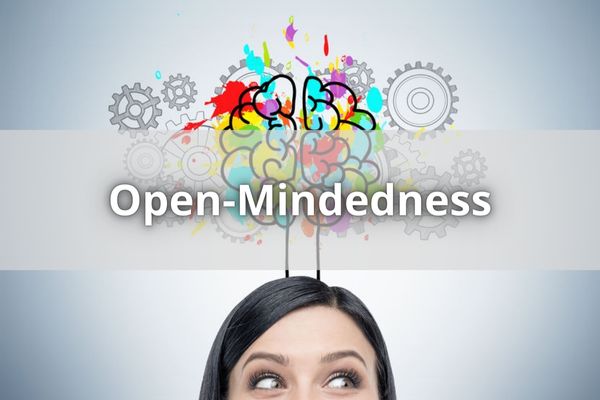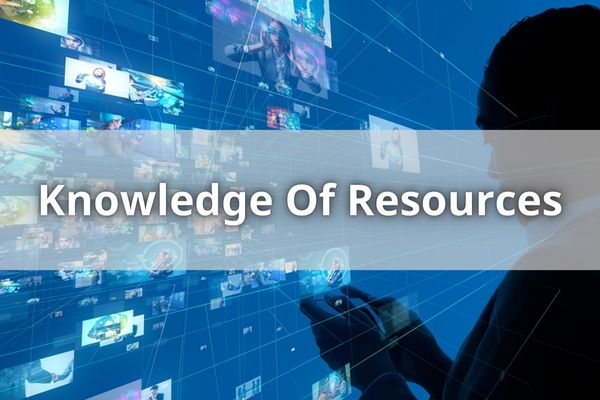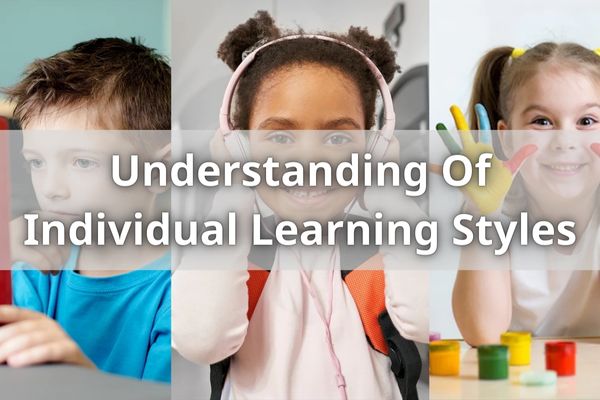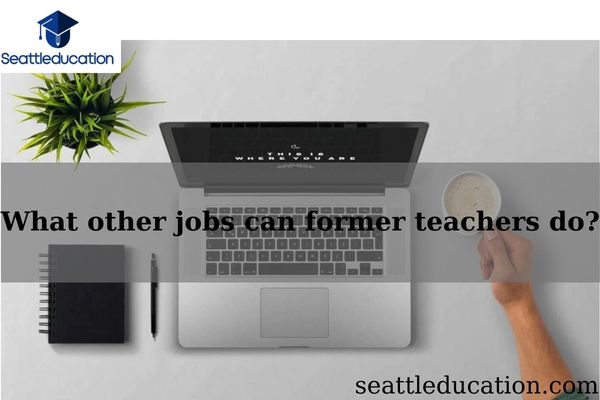School Counseling Mindsets And Behaviors – What Are They?
School Counseling Mindsets And Behaviors. As a school counselor, I know how important it is to have the right mindset and behaviors when working with students. It can be easy to get overwhelmed or discouraged by difficult situations, but having an understanding of what works best for both counselors and their students can make all the difference.
In this article, I’ll be discussing some key mindsets and behaviors that are essential for successful school counseling.
Open-Mindedness

As a school counselor, it is my duty to maintain an open-minded mindset and behavior. It is important for me to remain accepting of all perspectives, ideas, and beliefs that I encounter in order to provide the best support possible for those seeking guidance from me.
To ensure this openness, I must make sure not to be too quick to judge or dismiss other viewpoints; instead, my goal should always be to approach each situation objectively.
Having an open-minded attitude also encourages more meaningful conversations with students who come into my office asking for help. Rather than immediately offering advice without fully understanding their perspective, taking the time to listen and ask thoughtful questions can build trust between us while providing valuable insight into their individual needs.
This allows me to create tailored solutions that are both effective and respectful of everyone’s values.
It’s essential that I continue growing as a school counselor by constantly reassessing my own biases so they don’t interfere with how I interact with others. Non-judgemental attitude towards different worldviews will allow me to better serve the diversity within our student body and give them the best chance at finding success during their academic careers.
Non-Judgemental Attitude
Having a non-judgemental attitude is essential for school counselors. It allows them to remain professional and view each student with an open mind, without jumping to premature conclusions or judgments about the individual’s experiences. This approach creates a sense of safety in counseling sessions, allowing students to feel more comfortable discussing their issues and identifying solutions that guide them towards better outcomes.
To cultivate this attitude, it helps to remember some key points:
- Acknowledge all feelings as valid – no matter how uncomfortable they may be
- Remain neutral while still providing support
- Be mindful of group dynamics when working with multiple individuals
- Identify negative patterns but don’t focus on them too heavily
These guidelines help school counselors maintain an appropriate level of professionalism while understanding the needs of their students and helping them identify potential paths forward.
By taking these steps, school counselors can ensure that every session remains safe and productive regardless of the unique circumstances faced by each individual. With this foundation in place, it is possible for knowledge of resources to further strengthen the effectiveness of counseling efforts.
Knowledge Of Resources

As a school counselor, it is essential to have an understanding of the resources available to help high school students. Having knowledge in this area allows us to be able to provide more effective strategies and interventions for our student population.
The American School Counselor Association has established a standard of competency that outlines what counselors should know when it comes to having access to resources. It is important as counselors that we are aware of both internal and external resources so that we can best serve our students.
We must take into account factors such as availability, cost, effectiveness, and cultural relevance when choosing which resources will benefit our students most. Furthermore, we must also understand any legal or ethical implications associated with these resources before utilizing them. By being familiar with the various options, we are better able to assess the needs of each individual student before recommending anything.
By learning about all possible resources available to us as counselors, we become even more valuable assets within the educational system at large. Being well-informed enables us to deliver quality services and educate ourselves on current trends while still keeping up with changing times.
This ensures that every student is equipped with the tools they need in order to succeed in their academic journey through high school and beyond. With this knowledge under our belt, we are now ready for the next section: collaboration with teachers and administrators.
Collaboration With Teachers And Administrators
Having a good knowledge of resources can be an invaluable asset for school counselors. It is important to not only have access to the right tools, but also know how and when to use them. Knowing what services are available in the district can help me provide students with the best possible solutions that fit their needs.
By creating relationships and collaborating with teachers and administrators, I am able to lead my students towards success by connecting them with the appropriate skill-building opportunities or activities. Interacting with teachers and administrators helps create trust between all parties involved as well as build necessary bridges between home and school life.
Having this type of relationship allows me to better understand each individual student’s unique circumstances while being aware of any additional support they may require outside of our counseling sessions. Working collaboratively ensures everyone is on the same page so we can give our students a consistent message about expectations, behavior standards, etc., which ultimately leads to improved outcomes for both individuals and communities alike.
By forming strong connections with other educators, it sets up a powerful foundation from where I can continue building relationships across various stakeholders within my school community such as parents, guardians, staff members and even local organizations or businesses who might offer further assistance in areas like career planning or college readiness. Connecting with these people provides much needed insight into their lives which will allow me to develop more meaningful strategies tailored specifically to meet each student’s requirements.
This way I’m able to ensure every individual receives the personalized attention they deserve in order reach their full potential both academically and socially. Moving forward into understanding how families play an integral role in helping their children succeed…
Connecting With Parents
As a school counselor, I know that connecting with parents is essential to ensuring the success of our students. It can be daunting to reach out and build relationships, but it’s an important part of my job.
I use various strategies when engaging with parents. College and career readiness are key topics for discussion as well as classroom lessons their children may be struggling in. Time management tips can also help ensure that there’s enough time for studying, extracurricular activities, and relaxation throughout the week.
To make sure parent-teacher communication runs smoothly across the department, I strive to keep open lines of communication between teachers, administrators, counselors, and families at all times. This allows us to develop individual plans tailored to each student’s needs while involving everyone in the process – something I believe helps foster trust among those involved.
Empathy plays an essential role in understanding how best to support our students so they can reach their potential.
Empathy
I believe that empathy is an important part of any school counseling program. I understand the level of academic success that students need to achieve, and know that having a counselor who can empathize with their struggles will help them move forward in life.
It’s not only about understanding their feelings but also providing support as they navigate through difficult times in achieving academic goals. Empathy helps to build trust between counselors and students which allows for more open communication.
This type of connection enables the student to receive honest feedback on how best to approach their issues and obtain greater insight into personal development. The ability to have someone listen without judgement gives the student a safe space where he or she can feel valued and heard.
By fostering relationships based on mutual respect and understanding, counselors are able to create meaningful connections with students while helping them meet their needs academically and emotionally.
Through this process, both parties gain invaluable insight from one another leading toward successful outcomes personally as well as professionally.
To further enhance these interactions, it is essential to embrace active listening skills…
Active Listening

I have found that one of the most important aspects of being a school counselor is developing active listening skills. The ability to truly listen and understand what students are expressing is invaluable in creating an effective counseling relationship with each student I work with.
Active listening can be used to demonstrate respect for and build trust with students, which are both essential components of successful counseling interventions. The process of actively listening involves suspending judgement while really hearing what a student has said or expressed nonverbally.
One way to show understanding is through verbalizing back to a student what was just heard in order to receive confirmation that it was accurately understood. Additionally, asking open-ended questions throughout this process can help elicit further information from the student.
When done well, these small actions can lead to big results; often times students feel acknowledged and validated after feeling heard by their counselor. In my experience, there comes an inherent sense of pride when I am able to use my knowledge and expertise as a counselor to provide valuable insight into situations without taking away any autonomy from my students.
It is almost like receiving an award when you see the difference your effort made in helping someone else grow holistically; it’s something that no other reward or recognition could ever match up against!
Respect For Student Autonomy
After applying active listening in the counseling process, respecting student autonomy is another cornerstone of a successful school counselor. The ASCA National Model outlines that counselors should respect and uphold the rights of students to have autonomy over their decisions.
This means providing them with specific information about options available for post-secondary education or career paths so they can make an informed decision. It also involves allowing for flexibility as choices change over time; however this does not mean compromising on professional boundaries or ethics.
To best support students in making autonomous decisions, it’s important for school counselors to ramp up their knowledge in particular areas such as college admissions processes, financial aid availability, career exploration techniques, and more. Counselors must be able to describe these topics accurately and confidently so that students may understand all possible pathways after high school graduation without feeling pressured into one option due to lack of knowledge or understanding of other alternatives.
Advocating for student autonomy requires school counselors to maintain awareness of different resources available to ensure student success during each step of the journey from high school through post-secondary plans. With comprehensive knowledge at hand, counselors can assist students efficiently while empowering them with self-determination skills needed throughout life.
Asking open ended questions when appropriate helps build trust between the student and counselor which will enable both parties to develop meaningful relationships centered around mutual respect and achieving desired outcomes.
Flexibility
As a school counselor, I recognize the importance of being flexible when working with students and other stakeholders in the educational environment. It’s important to remember that each student is unique and may respond differently than others to our approaches or strategies. Being willing to adapt my tactics on the fly allows me to make sure all goals are met and that everyone involved feels heard:
- Taking time for active listening
- Offering options instead of solutions
- Allowing moments for reflection
It also benefits me as an educator by giving me opportunities to learn new techniques or practice different styles of communication. Flexibility serves as a reminder that there’s always room for improvement in how we interact with one another. This helps foster relationships between myself, my colleagues, and those I serve.
By understanding what it means to be flexible, I am better equipped to meet the needs of any situation while taking into account cultural awareness – regardless of whether it’s within the classroom walls or outside them.
Cultural Awareness
It’s amazing how much difference culture can make in the way we think and behave.
As school counselors, it is essential that we understand different cultural backgrounds so we can better relate to our students. We must be aware of the various traditions and values each student may have, as well as their distinct experiences growing up.
In order to gain a deeper understanding of our students’ cultures, it helps to take time to learn about them directly from the source – through conversations with them or by attending local events related to their culture.
By doing so, we are able to show empathy towards any difficult situations they may face due to societal pressures stemming from their background. This also allows us to provide more informed guidance when needed.
We should never forget that our role as school counselors goes beyond providing academic support; it’s just as important for us to connect with our students on a personal level too.
Acknowledging and respecting traditional practices and beliefs will help build trust between us and create an even stronger bond which can influence positive outcomes both emotionally and academically for all involved.
With this knowledge in hand, let’s move on now to getting a better understanding of individual learning styles.
Understanding Of Individual Learning Styles

I believe it is essential to understand individual learning styles in order to effectively support students’ academic and social development. Being aware of a student’s unique approach towards absorbing knowledge can provide valuable insight into how best to help them reach their goals. It is important for school counselors to recognize the impact that different instructional strategies have on each learner, as this helps ensure that all students are receiving an education tailored to their specific needs.
One way we can assess a student’s learning style is by observing how they interact with new material. Some may be more visual learners, while others might prefer auditory or kinesthetic approaches. We must also consider other factors such as background knowledge, interests, language proficiency levels, and special needs when designing instruction plans.
The goal should always be to create activities that engage every student regardless of their preferred learning style. By taking the time to truly understand our students’ individual needs, we are better equipped to develop meaningful relationships with them and foster growth through supportive interventions. Whether these involve providing additional resources or connecting them with mentors who share similar experiences, the outcome will ultimately depend on how well we respond to what our students need most.
Every student deserves access to personalized educational opportunities that fit their strengths and weaknesses; understanding learning styles gives us the chance to make sure that happens.
Conclusion
School counselors have an important role to play in the academic success of students. By building relationships, fostering positive school climates, and using effective strategies when working with students and parents, school counselors can help create a supportive environment where everyone feels safe and respected.
It is essential that school counselors commit to developing their mindsets and behaviors so they are prepared for any challenge. With this commitment to learning, growth, and development comes the promise of continual improvement for our schools and communities.







